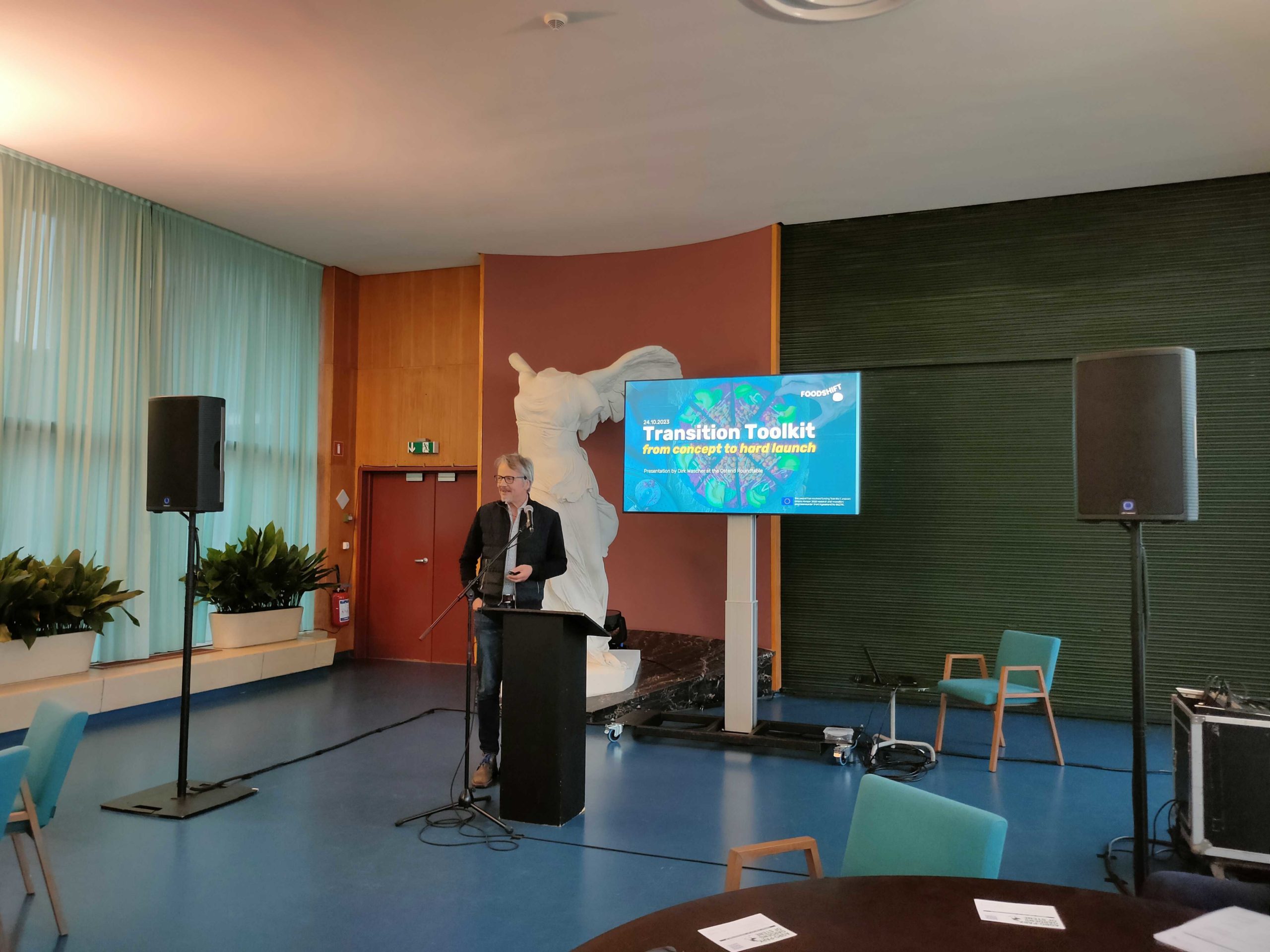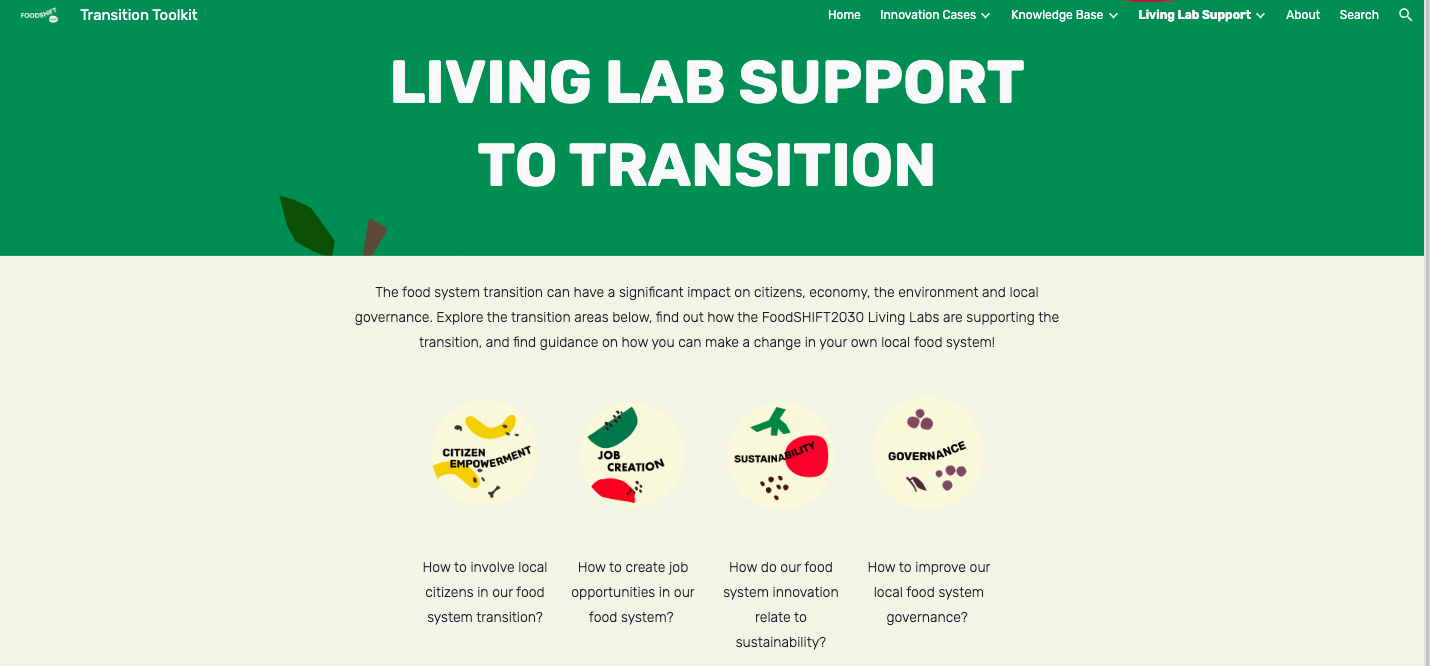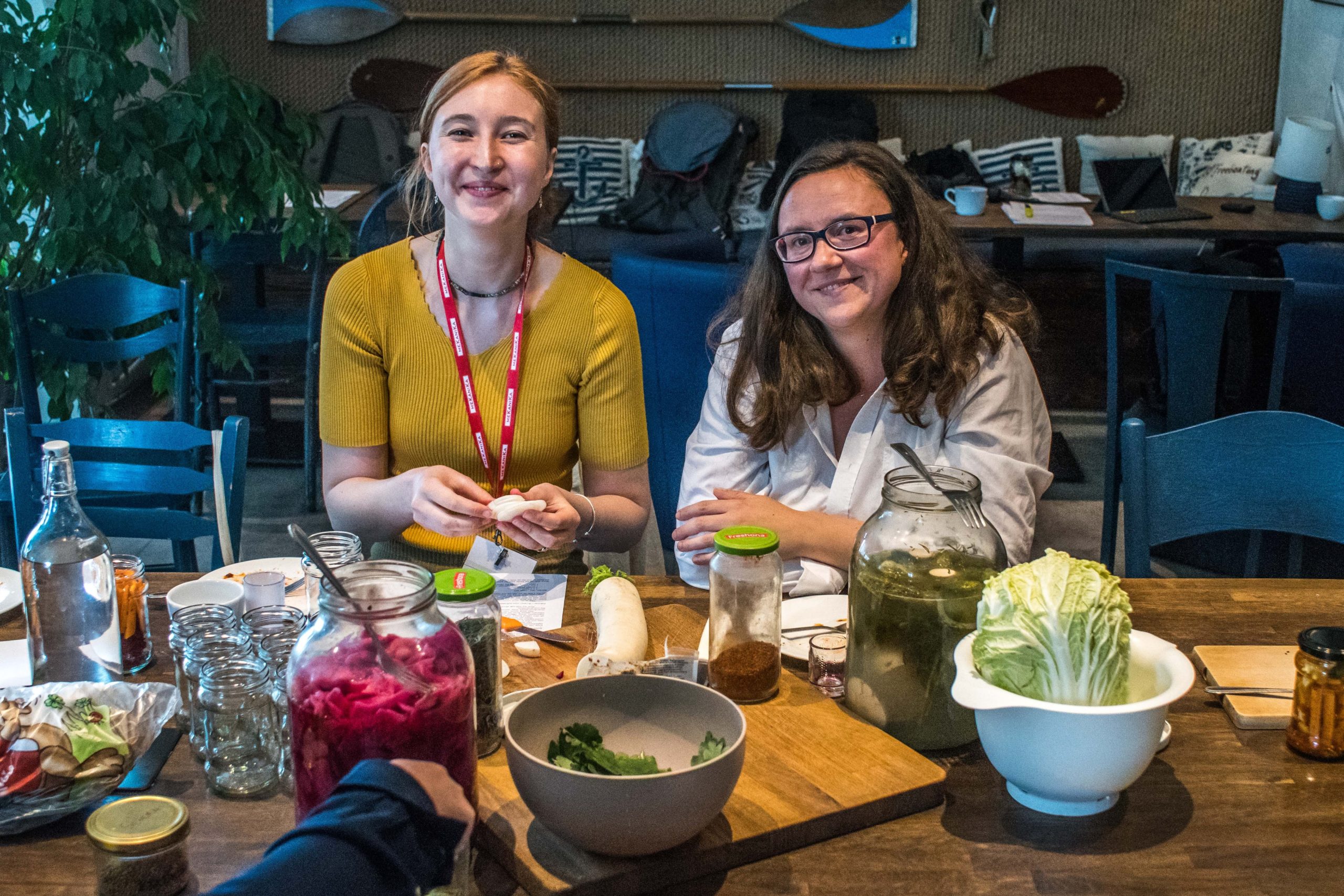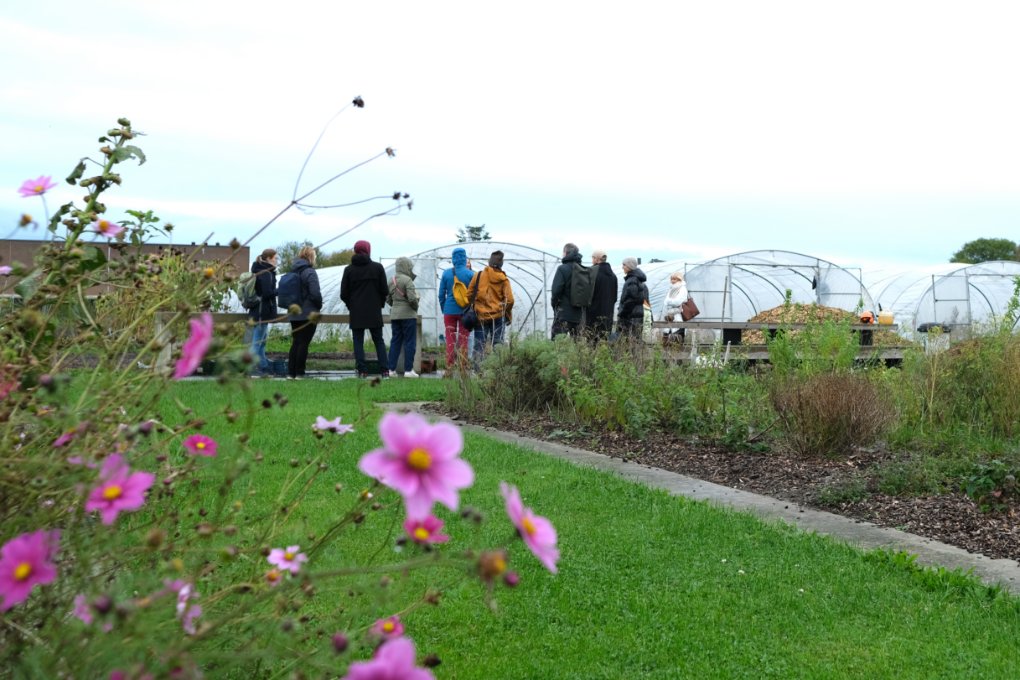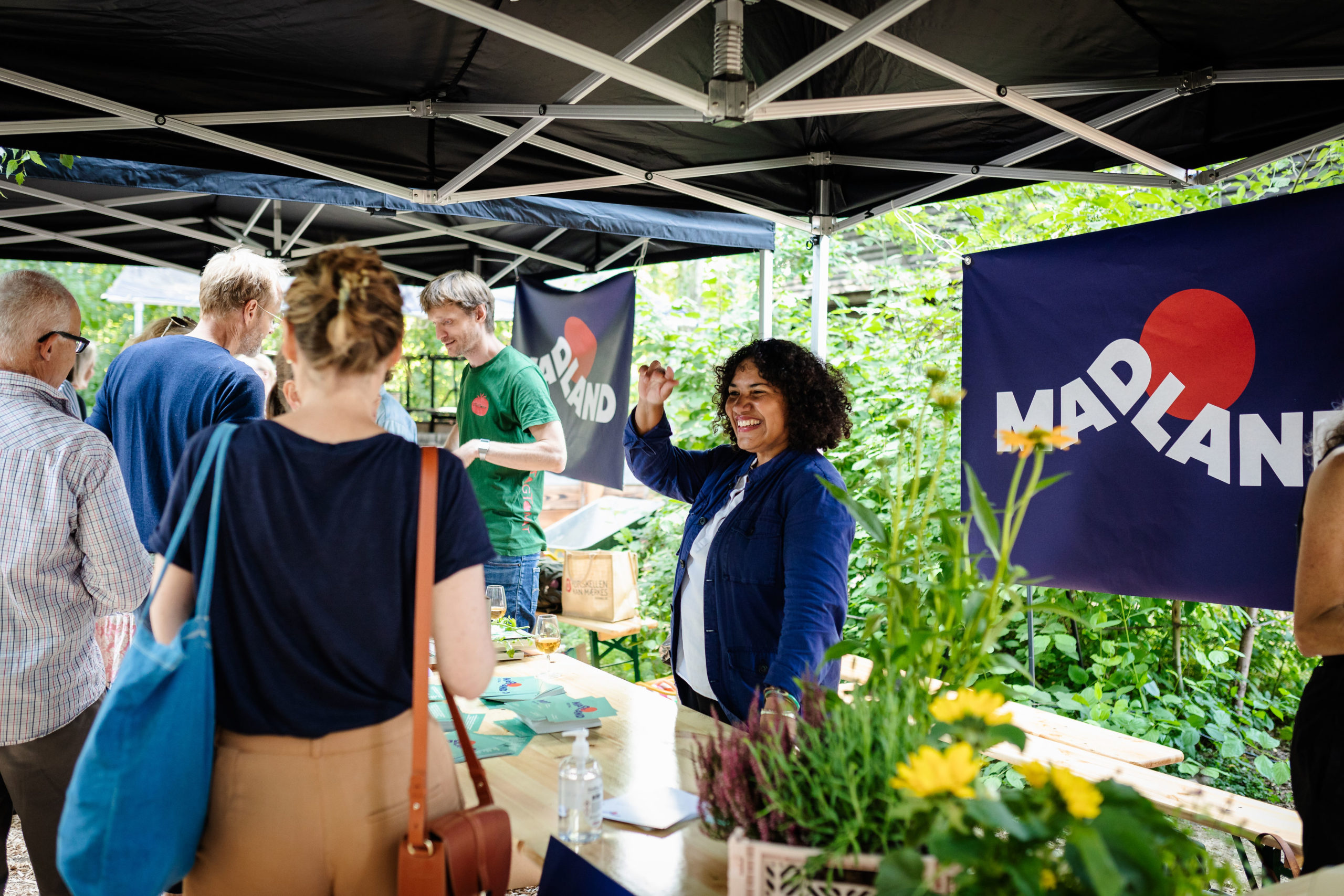Brasov’s story: Interactive Food Lab
13 December 2023
Four years ago nine city-regions took on the challenge to establish FoodSHIFT Accelerator Labs. In this final blogpost, the Brasov Lab reflects on the journey and development made during the whole project, through an interview to the Brasov Lab coordinators. Explore the Transition Toolkit to to learn more about the other Lab’s experiences, Brasov’s city’s reports on innovation and governance and more.
Key takeaways
- The Brasov city focus was on integrating small and local producers into the food system and to revitalise the local gastronomy.
- They chose this focus because there was little awareness on the topic of food and short supply chains among citizens and politicians alike. Hence, their objective was to re-establish a connection to local foods.
- This didn’t come without challenges as one can imagine: raising a completely new topic to the public agenda in a time of internal political changes and various international crisis is not easy.
- But, Brasov succeeded in a variety of ways: they managed to raise awareness among citizens, farmers and politicians to involve public stakeholders in various activities and endeavours, to a point where not only food is on the mainstream agenda of the public administration, but they changed local legislation on food and inspired the involvement in subsequent EU projects.
- For a city wanting to embark on a similar journey, the recommendation is to use empathy to better understand others and relate to their challenges in order to push one’s own agenda forward and to “sleep on the entrance mat of the municipality” and stick to the officials’ door until you see your objectives on the public agenda.
Interview with the Brasov Lab coordinator
What was your city’s specific focus in your food system transition and how did you initially start working with this focus area in your city?
Raluca Barbu
Our objective was to integrate the small and local producers into the food system and to revitalise the local gastronomy.
Catalin Frangulea-Pastor
And this was obviously the main topic. But I remember that when we started the application process, and we started to talk about the issues, we discovered that also in the public sector, there was basically zero awareness about what’s happening in the short supply chain. There was zero awareness for whether or not this is an issue for local authorities. And somehow, we also tried to include and address this within the application of the project.
What were some obstacles or challenges you faced in your food system transition and how did you overcome them (or are planning on overcoming them)?
Raluca Barbu
There was no network and very few initiatives that were existing at the city region level relating to food. I think the only one was the food bank. But they have a very, very specific focus in terms of their activities. We tried to connect with the Association of Restaurants. But that was challenged by the fact that their main focus right after COVID was to open their restaurants, first of all, and to start attracting clients again, and to recuperate basically, almost one year and a half of being more or less closed.
Catalin Frangulea-Pastor
It was generally the fact that we were tackling a completely new area, let’s say for the public administration. There was no food topic as such.
Raluca Barbu
I would also mention that it’s also sometimes the mentality of the producers, and particularly the small ones. The fact that we do have lots of producers which are not guided, they’re not how to say, tutored by any institution in Romania basically. So, it’s a little bit of a jungle. And it’s very much about gaining their trust. But that is a process that needs to be constant and consistent. And for me, that was the main challenge directly coming into my mind. It is working with small producers which are not used to be aggregated, which are not used to be asked to fulfil certain conditions, and so on. So also, the fact that we didn’t have any hook. Like we didn’t have any previous framework set, before we landed with the living lab on food. And COVID itself. And the fact that we were getting from COVID into refugees, and so on. It was a little bit of obfuscation, let’s say, for not having maybe the municipality more available, to hear messages and to involve them in a more kind of direct partnership with us for pushing the food topic on the public agenda.
And my insight here is that as an organisation we would need more support in terms of funding. So, for us, we really need funding to work on this. We’re going to carry on working on this, even if we don’t necessarily have projects focusing on food systems. But funding and I think maybe even a mainstream funding from the municipality. Because this would also be a way of sending the message that this is important for us as a public agenda in Brasov. And I would very much like to see a food council soon. Because that would help a lot. Otherwise, it feels overwhelming to be the only ones talking about this and working on this food topic. Not necessarily a burden, but it feels like, you know, you don’t have too many other stakeholders to share this with and to catalyse and merge efforts, and to see results which are much more motivating.
If you look back on the last four years, what would you say were your biggest achievements or impacts that you achieved during the project?
Catalin Frangulea-Pastor
Throughout the project, we were able to not only raise awareness, but to involve public stakeholders in various activities and endeavours, to a point where the food policy, or the food issue are
on the mainstream agenda of the public administration. And FoodSHIFT has been an important component in starting this. But also how the municipality is relating to local farmers, to local producers. And how it understands that even though they are part of different administrative units, different communities, villages and other towns around Brasov, there is still a need to somehow get in touch, have a relationship, create an ecosystem where these farmers would be able to deliver healthy produce for the citizens of Brasov.
Raluca Barbu
Yes, and basically, we can say that, I think there is much more awareness at the governance structure level than it was at the beginning of the of the project.
Catalin Frangulea-Pastor
It’s important to mention here, and you kind of touched on that, that there is not a national legal framework, which, let’s say, gives local or regional authorities a role in what’s relevant for the food policy. So, it’s up to local regional agencies, authorities or whatnot to take on this task. And basically, it’s based on, I want to say an individual passion. So FoodSHIFT was the framework through which we were able to connect with similar counties, and we were able to build on each other’s experience. Because it’s important to understand that not all public authorities really understand that the food policy in place is really an asset for sustainable development and for resiliency. We just had to pick those who are thinking alike from the territory.
Raluca Barbu
And there was still full pandemic time. And we might need to mention here that the new mayor and new municipality team, that just got elected when the project started, had to deal with COVID first. It was the whole thing with the meals, if I remember correctly, for certain social categories, to ensure meals. And then the war started. And we started to receive refugees from Ukraine. So basically, I think in the given circumstances, I don’t want to pat ourselves on the shoulder, but I think the fact that we still succeeded to send some messages in this very challenging context is something to be proud of. I think we achieved something, because there were lots of hot issues to address at the same time at the city level.
Catalin Frangulea-Pastor
That is exactly my point, actually. When you look back, given all the crises and bear in mind, not local crisis, but global and regional, continental crisis. There were, let’s say more important things on the agenda of the public administration. And in terms of COVID, even us within the FoodSHIFT consortium were to a certain extent involved in the COVID crisis, because as the Brasov lab, we were directly involved in even managing a vaccination centre. And then within the crisis, even though Brasov is not a border city, we’re dead smack in the middle of the country, we were one of the most active cities in receiving refugees and providing services for them. And the building where we are at and where the lab actually functions, acted as a refugee centre, and it was the only blue-dot UNICEF centre outside of a border area. So, within this context, to be able to put food citizenship, food awareness on the agenda of the public administration, and at the end of it to come out with various initiatives. I think it deserves a pat on the back.
Our focus from the beginning was to promote and to support local farmers and short supply chains. Because again, it was virtually non-existing and any initiative at the time was poorly organised, it wasn’t efficient, and it was small scale. There were no options to develop or to grow, and to reach a policy level or some sort of system. I actually think that the FoodSHIFT activities gave local farmers a boost. Not necessarily the main boost, but a boost. Because I wanted to mention earlier, usually when something like a policy is born, there’s two or three small initiatives which slowly start the process, then die down and then other ones start. And by the third or fourth one, you already know what to avoid and what the critical success factors are. I think FoodSHIFT is the second or third of such endeavours. So, we’re almost at the food policy level. Now, we were able to engage with farmers. That was absolutely important. We were able to engage with restaurant owners and to try to activate them into matching with local farmers. And in some cases, something grew out of it, in other cases not so much. But still the effort was there. And also, we managed to engage with public authorities and basically try to explain and ensure awareness raising regarding public procurement and how using local short supply chains would favour sustainable development and local resilience. To a certain extent FoodSHIFT has also been the spark that ignited other projects, which was the FoodWave. And actually later on, the municipality got involved in Food CLIC. Which was a bit of a follow up of FoodSHIFT. Because within the application of the project, FoodSHIFT was mentioned as a reference and as a starting point for their project.
Raluca Barbu
Yeah, maybe to add here in terms of policy successes or changes, I would very much mention the recommendations that we sent together with WWF, but also with the municipality of Brasov to the Ministry of Agriculture, to change the legislation on the programme on bread, milk and the fruit in schools. And that we succeed to have some money allocated for the educational component of the programme and for the visits to the farms of the producers that are providing, for instance, the milk in schools in Brasov.
Catalin Frangulea-Pastor
Maybe I’ll add an anecdote from the consortium roundtable in Brasov, when the mayor had his initial speech to the consortium. And then one of the partners started to talk about their hot meals in the school programme. All of a sudden, the mayor started to ask: okay, so what’s the cost, who’s splitting it, who’s paying it? And I’m going to say this: from that point on, we were engaged in trying to adapt such a system to Brasov. As a living lab host, we were able to get involved and create a pilot study that would evaluate what the cost would be. And we delivered the conclusion to the municipality so that they could start the pilot project for a certain school that we already had identified. And now the municipality is trying to find the money and the institutional framework through which we want to mirror what we learned from FoodSHIFT and start the pilot project that would provide hot meals for about 1300 students in a school for a year. And with this, try to see what lessons we could learn from that. It’s one of the things that was kickstarted by FoodSHIFT and specifically by a meeting of the FoodSHIFT project.
What advice do you have for other cities who want to embark on a similar journey?
Catalin Frangulea-Pastor
I am going to provide the academic answer. It’s important to focus on, I want to say, anthropology and empathy. And to put it in a simpler way: it is to really walk a mile in someone else’s shoes. Whether it’s a farmer, whether it’s an elected official, whether it’s a restaurant owner. And to understand their challenges, understand that their goal in life is not necessarily to make your life difficult, but that they need to answer some challenges as well. And by understanding that, anthropology and empathy, one would be able to move through this labyrinth of obstacles and challenges and things to overcome with a bit more ease.
Raluca Barbu
I would say, sleep on the entrance mat of the municipality.
Catalin Frangulea-Pastor
Yeah, I have another way of putting that which I use in many of my speeches. And usually I say this to ladies, because ladies wear heels. I say, listen: be that person that when your heels are tapping on the hallways of the municipality, the people go “Shit, she’s in here.”. Be that person.
Raluca Barbu
And talking of that anthropology and compassion. For instance, I was trying to see the municipality and the mayor with more compassion. Because it was their first mandate, they hit a hard wall with COVID and then refugees. And I knew that sometimes it’s more counterproductive to push for things when the other one is not available. But in the absence of COVID, and other crisis, just go and sleep on the entrance mat and stick to the officials’ door until you see your objectives on the public agenda.
Contact details
HCC
AMB
